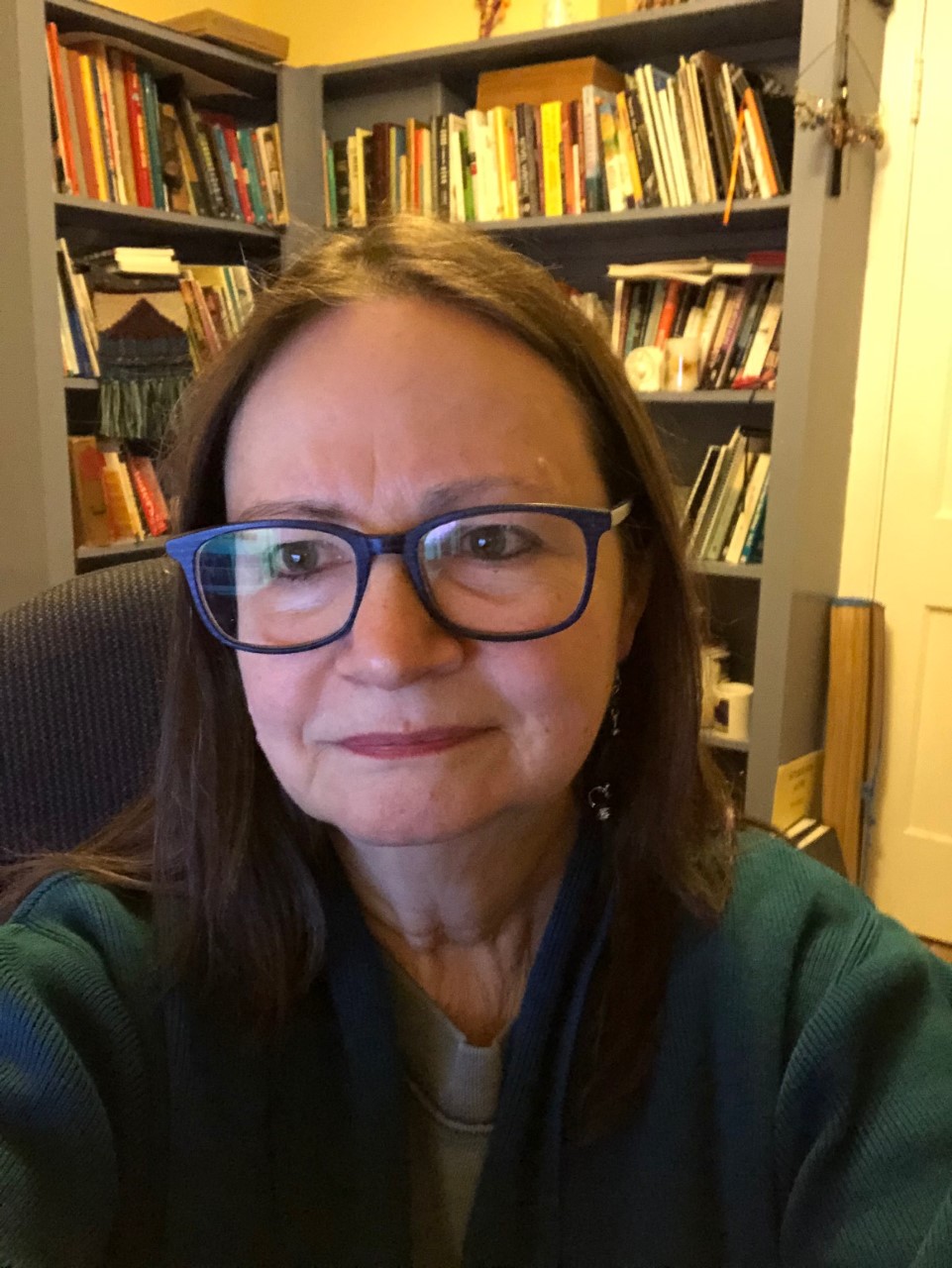Monday Miscellany - November 8, 2021
by Baltimore Review Staff Members
Our Fall 2021 issue launched on November 6! We are pleased to present poems, short stories, and creative nonfiction by the following writers:
Justine Chan
Morgan Florsheim
Kerry Folan
Emily Franklin
John Glowney
Brandon Hansen
Janet Jennings
Madison Jozefiak
Iqra Khan
Gerry LaFemina
Nicholas Maistros
Caroline Pittman
Dannye Romine Powell
J. T. Robertson
Merna Dyer Skinner

As a college senior, I have a packed schedule. I’m staying up later than I’m used to and getting up too early. The mountains of homework continue to pile up. Carving out time to write is difficult now, but I still find time to think about writing (and sometimes I actually achieve it). It’s ironic, really. Usually the stress and the pressure fuel all of my writing ideas. To fully flesh out an idea and turn it into a complete work, I need time. The time I do have to write is random and usually comes in limited minutes. I don’t have a lot of time to sit down and write the way I want to, but that doesn’t mean that I can’t write at all.
For my birthday, my friend gave me a book full of writing prompts. What I love about this book is that it’s not crammed with the same kind of prompts. This book is divided into sections that cover various aspects of craft and exercises. I think this can help develop a full story and build up specific parts of it. For example, there’s a specific section dedicated to characterization. It provides you with questions to help you dive deeper into who your character really is. There is also a whole section for opening lines that can help you create an entire plot.
My point is that while I don’t always have the time to create what I really want, I am still able to generate ideas on a daily basis. I keep the book on my desk, and when I’m starting to feel overwhelmed, I flip to a page and just start thinking. Once I start thinking, I just write down random bullets with thoughts. These prompts really help me keep ideas fresh. I don’t have to dedicate too much time to each of these prompts. It’s all about how I use the time I have. For example, if I’m focusing on a prompt with an object, I can quickly jot down some plot ideas and characters, but I don’t need to put it all together at once. I can go back to it later when I have the time.
While my process may be scattered and inconsistent, I still find ways to plan and think about writing, even if I don’t sit down to fully do it. This keeps my brain moving and helps me plan for a future time when my schedule won’t be as busy.
___________________________________
“Quality over quantity”

This sage advice is no longer just about your friendships. When writing fiction, writing concisely always leads to a stronger piece. It forces us to choose our words deliberately and with care, thoughtfully piecing together a work of art rather than spitting out the first idea that comes. Word choice is arguably the most fun part of the process; this is how we create atmosphere. Without much thought to word choice, a great plot becomes loose and hard to grasp.
“Doesn’t the verbosity give this piece a more unique voice?” A younger Bobby Jones once naïvely asked his fiction writing professor this same question. Sure, writing as much as possible to describe things is one way to create a voice, but it almost always comes off as rambling and unnecessary. Actively thinking about tone and deliberately picking the right, concise words to match it will always be a more enjoyable experience, both for you and the reader.
__________________________________
A Few Words About Words

Remember that scene in The Princess Bride when Inigo Montoya says, “You keep using that word. I do not think it means what you think it means”? Sometimes when I’m reading submissions, that line creeps into my head. OK, I confess that it’s crept into my head when reading some of my own draft (and, yes, later stage) stories and poems. Maybe I just liked the sound of the word, the way it seemed to sing with the other words in its vicinity—a choir of words!—and our writing should be pleasing to the ear, right? Maybe it was simply a specific word, which is ever so much better than some vague word like “tree” or “car” or “pretty,” right?
Well, wrong, actually, if the word doesn’t convey the image or idea you intend.
Be absolutely sure of the meaning of every word you use. Even if you like the sound of the word and you think that it’s a fine and interesting word, be sure of its definition and usage, especially if the word is not part of your everyday vocabulary. Read examples of the word in sentences. Many dictionaries include them. For example, transitive verbs require an object. Examples of a transitive verb in a sentence will make this clear. Check to see if words are used with “from” or “than” and how you make them plural or how other verb tenses are formed. Your word might be exactly what you need, but it still has to be a team player. Definition plus usage.
Consider the pronunciation of a word, too. How many of us have used the wrong pronunciation of a word for many years before learning (sometimes with some embarrassment) the word’s correct pronunciation. Maybe not as big a deal as not knowing the correct definition, but something to consider if sound—rhythm, assonance, consonance, etc.—are important to you.
Make sure that the word makes sense in the context of the work, that it’s factually accurate. For example, I may love the sound of Buttonwillow, but if I’m writing a poem about trees in a Maryland park, the Buttonwillow would be over 2,000 miles off. So I’ll have to put the lovely Buttonwillow tree aside for another poem.
Never mind your own vocabulary. Is the word in the vocabulary of your story character? Does the word have the right diction, the right tone? Is it jarring coming from a child? Does it fit the time and place of your work? Character building and world building involve vocabularies. Readers have to feel that they’re natural, that they make sense.
Even if you’re absolutely sure of a word’s definition, are you sure that it’s the best word? A word that sounds good, is precise—is part of a structurally sound group of words that doesn’t defy logic and the laws of nature—but maybe there’s a better word? Writers are allowed to be fickle. That’s where the thesaurus comes in. Your gut-instinct word may win out in the end but check that word against other words in the thesaurus anyway. And look up their definitions, too, even if it takes you down the rabbit hole of research.
And yes, I Googled “trees that only grow in California,” and I loved the sound of Buttonwillow.
